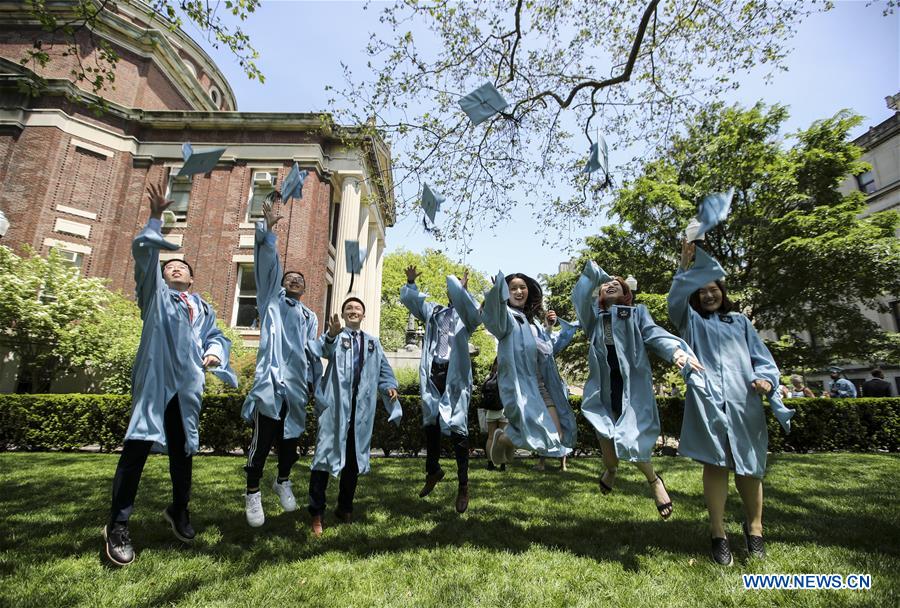Post COVID-19: Transportable higher education for an interconnected world
- By Eugene Clark
 0 Comment(s)
0 Comment(s) Print
Print E-mail China.org.cn, May 31, 2020
E-mail China.org.cn, May 31, 2020

While the COVID-19 pandemic has turned us inward in the short term, the reality remains that the world today is a much smaller place, and we humans are more connected than ever before. The Global Recognition Convention, signed in May 2020 by Norway, the first country to do so, provides a pathway by which students can have their higher education qualifications recognized everywhere.
Under development since 2011, the Global Recognition Convention builds upon and complements existing regional conventions. It is the work-product of more than 260 technical and legal experts from approximately 150 member states.
The Global Convention on the Recognition of Qualifications concerning Higher Education was adopted unanimously by UNESCO's 193 member states during the General Conference of the United Nations Educational, Scientific and Cultural Organization in November last year, and is the first UN treaty on higher education with a global scope.
Its aim is to establish an international framework for fair, transparent, and non-discriminatory recognition of higher education qualifications. This is achieved by establishing and promulgating universal principles for improving recognition practices.
Prior to the COVID-19 pandemic, more than 4 million students studied outside their home country. It is hoped that this number will grow substantially once the world meets and works through the challenges of the current pandemic. Moreover, the growing use and further development of online education may also facilitate the re-growth and further expansion of international exchanges, multi-national courses, and out-of-country study experiences (face-to-face and/or virtual) by students.
The Global Convention will also provide a vehicle for national authorities, academics, university leaders, and government regulators to collaborate across borders and regions to develop better tools and practices, including online cooperation, for the recognition of higher education qualifications across national and regional borders.
The Convention will facilitate the mobility and flexibility required to focus talent on areas of the greatest need. It will provide a framework for international cooperation and promotion of quality assurance and greater democratization and enhanced access to higher education opportunities. It could even help prevent brain drain given that a country's own courses will receive international recognition abroad as well as encourage students from other countries to gain experience outside their home country.
The Convention will also facilitate and increase opportunities and access to higher education for the millions of migrants who have had to leave their home countries.
The next step in the process is the Global Convention's ratification by national governments who will need to fulfill their commitment to facilitating mobility and exchange across the globe. These ratifying countries will need to invest in implementing the comprehensive measures required to support and monitor the implementation of recognition procedures and decisions in compliance with the Global Recognition Convention.
The Convention is subject to ratification, acceptance, or approval by member states of UNESCO in accordance with their respective constitutional and legislative procedures. The instruments of ratification, acceptance, or approval must be deposited with the Director-General of UNESCO.
The Convention will enter into force three months after the date of deposit of the twentieth instrument of ratification, acceptance, approval, or accession. However, it will be binding only on those nation states which have deposited their respective instruments of ratification, acceptance, approval, or accession on or before that date. As to other nations, the Convention will enter into force with regard to any other state party three months after the deposit of its instrument of ratification, acceptance, approval, or accession.
In the words of former UN Secretary Kofi Annan: "Education is a human right with immense power to transform. On its foundation rest the cornerstones of freedom, democracy, and sustainable human development."
Eugene Clark is a columnist with China.org.cn. For more information please visit:
http://www.ccgp-fushun.com/opinion/eugeneclark.htm
Opinion articles reflect the views of their authors only, not necessarily those of China.org.cn.
If you would like to contribute, please contact us at opinion@china.org.cn.





